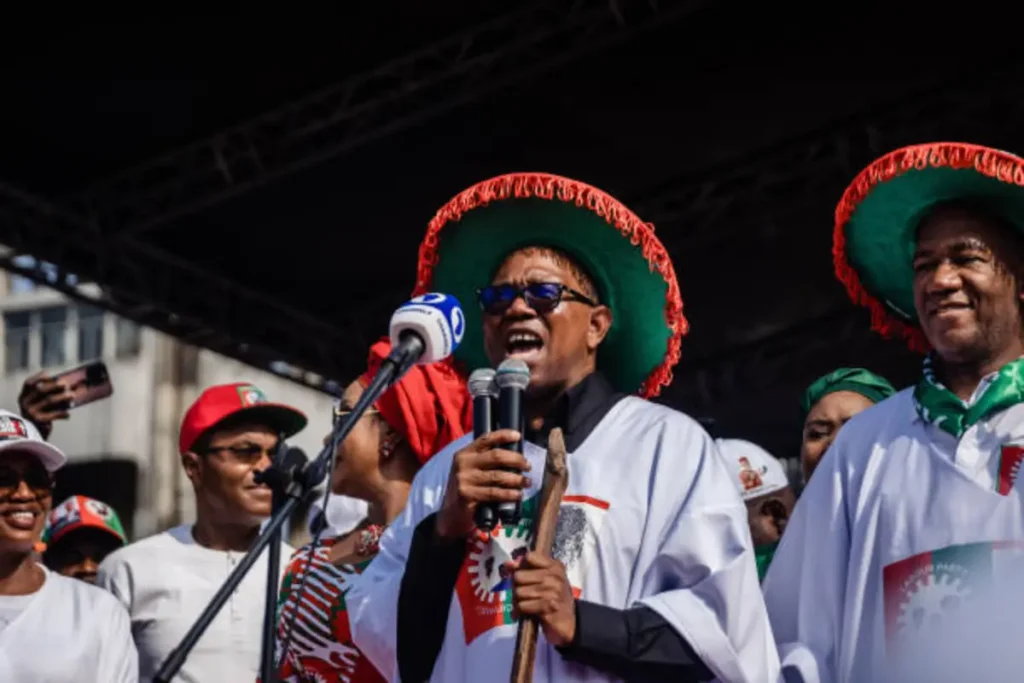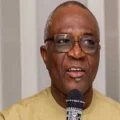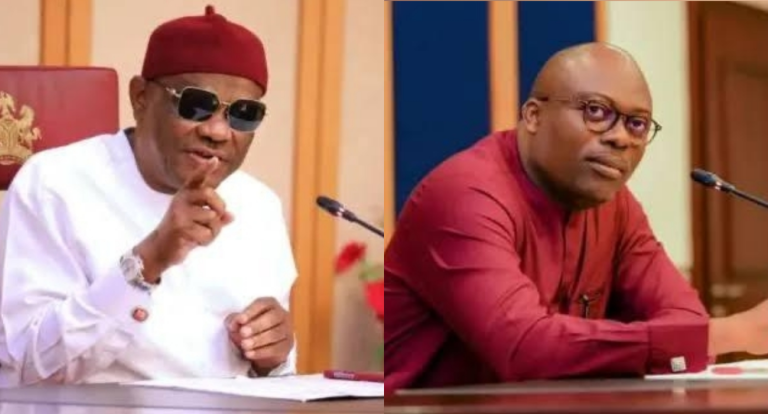
Labour Party rules out Peter Obi for 2027 presidential ticket as Arabambi intensifies crisis with accusations against leadership figures.CRISTINA ALDEHUELA / AFP
The declaration was made by the party’s National Publicity Secretary, Abayomi Arabambi, during a televised political interview on Monday.
Arabambi insisted that the party was capable of surviving politically without Obi, who had been its presidential flagbearer in 2023.
“We are going to do our 2027 without Peter Obi; he will not have our ticket,” Arabambi said.
Labour Party crisis over 2027 presidential ticket
Arabambi accused the party’s acting national chairperson, Nenadi Usman, and activist Aisha Yesufu of supporting Obi against the organisation’s interests.
He described the two figures as “an epitome of political extremism” and vowed that the leadership would take steps to remove them.
The spokesman alleged that Obi had divided loyalties across several political organisations, which undermined his commitment to the Party.
“Obi has one leg in Labour Party, one leg in PDP, and one leg in ADC,” he stated.
Arabambi challenged Obi to make a public declaration confirming whether he would remain with Labour Party ahead of 2027.
Obi and Rhodes-Vivour in focus
The spokesman also raised questions over the political future of Gbadebo Rhodes-Vivour, who contested the Lagos governorship with Obi’s support in 2023.
He suggested that Rhodes-Vivour’s standing may be affected if the leadership continues its strategy of excluding Obi from future plans.
The dispute highlighted a widening rift between Obi’s supporters and the Labour Party leadership as preparations for the next election intensified.
Arabambi argued that the momentum seen in 2023 should not be credited to Obi alone.
He said that the electoral surge stemmed from the anger of young Nigerians following the EndSARS protests and widespread frustration with the government of former President Muhammadu Buhari.
“Obi was just a man who came to whip as a result of Nigeria’s tiredness of the scandalous administration of Buhari during the EndSARS,” Arabambi declared.
“He only found Labour Party as that vehicle that can provide that change, and he was just opportuned to be the head.”
Debate over Labour Party direction
The Labour Party secured more than six million votes in the 2023 presidential election, a performance that positioned Obi as a major challenger.
Arabambi dismissed suggestions that Obi was solely responsible for that success, emphasising the role of collective discontent among Nigerian youths.
The spokesman alleged that continued association with Obi was dividing the party at a time when unity was essential.
He accused Obi and his allies of destabilising Labour Party through actions inconsistent with its core interests.
The rift has created uncertainty within the opposition, as members remain divided over whether to retain Obi as a central figure.
Implications for 2027 political strategies
Arabambi said the Labour Party would introduce disciplinary measures to reinforce internal unity before the 2027 election cycle begins.
He demanded that Obi declare his political position openly rather than continue maintaining ties with multiple political groups.
According to Arabambi, Labour Party must demonstrate independence and resilience without relying on a single personality for political survival.
The remarks have generated renewed debates over whether Obi could attempt to return to the Peoples Democratic Party or seek alliances elsewhere.
Party leaders remain under pressure to determine whether excluding Obi will strengthen or weaken their electoral prospects in 2027.
Arabambi described Obi as opportunistic, asserting that his rise was driven more by public frustration than long-term party loyalty.
He said Obi benefited from being positioned at the forefront of an anti-establishment wave rather than building Labour Party from within.
Obi has not issued a direct response to Arabambi’s claims, though he has continued to comment on national issues such as insecurity and economic reform.
The leadership of Labour Party continues to meet over strategies for managing disputes and preparing for the next election cycle.
Observers believe the outcome will influence opposition politics in Nigeria over the next four years.
The Labour Party’s divisions mirror wider challenges facing Nigeria’s opposition parties as they struggle to compete with the ruling APC.
Related: Lagos demolition displaces residents as bulldozers storm Iyana Oworo overnight
The performance of Labour Party in 2023 demonstrated that alternative platforms could disrupt the traditional dominance of APC and PDP.
The 2027 elections are expected to provide a crucial test of whether the Party can redefine its strategy without Obi’s leadership.



